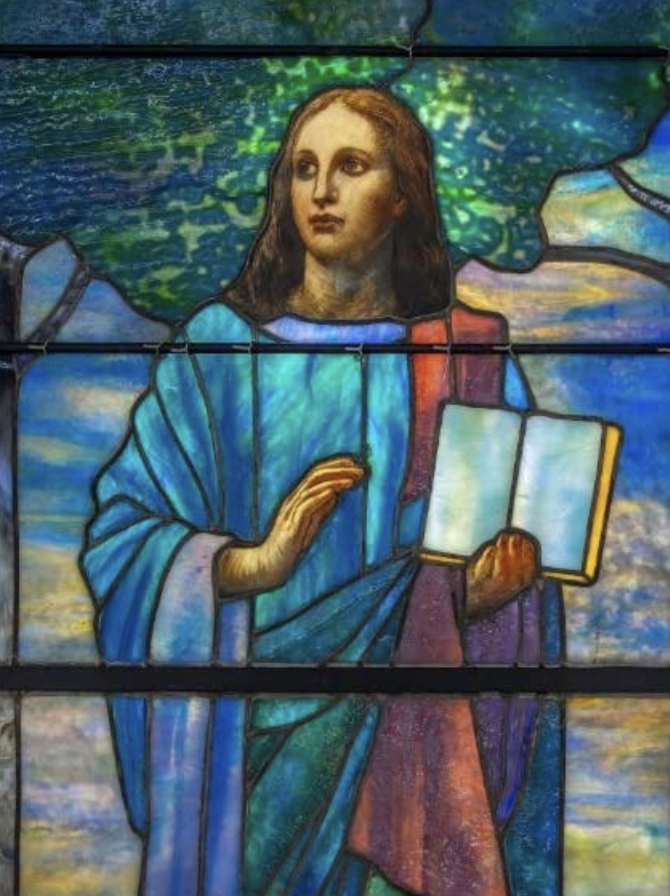Inspire 21-Day Devotional: Illuminating God's Wordਨਮੂਨਾ

WEEK 2, DAY 1: CAN WE TRUST THE BIBLE?
In this week, we’ll continue to address a question many people wrestle with: Can we trust the Bible as reliable, true, and authoritative? We’ll look at evidence for the Bible’s authenticity, accuracy, and historical credibility, as well as the way it has stood the test of time.
The Bible Is Purposeful
It’s generally thought that the Apostle John was the last to write his Gospel. He may have even known about the others. What makes this even more remarkable is the distinct character, style, and content of the fourth Gospel. Having the advantage of going last, John could include events, teaching, and accounts that added to what was already well-known. Additionally, he was able to zero in on a very specific reason for writing: that the reader might believe that Jesus is God’s promised Messiah and have life in his name.
A remarkable transformation happened in John’s life. He was the youngest of the group of twelve disciples, which included his brother James, and began following Jesus and listening to his teachings. As time passed, John, James, and Peter formed an inner circle, leaders among the disciples. They were the only ones with Jesus during the transfiguration, and they accompanied him into the Garden of Gethsemane on the night he was betrayed.
Early in Jesus’s ministry, James and John were known as the “sons of thunder” (Mark 3:17). We can infer that their anger issues became readily apparent to the other disciples. But over the course of his life, John became known as the apostle of love. In his first letter to the church, he reminds us, "God is love,” and, "No one has ever seen God; if we love one another, God abides in us and his love is perfected in us.” How can we account for the difference?
The answer comes in the way John identifies himself in his Gospel. Because John the Baptist is the main character of the first part of John, he waits to introduce himself until the second half of the book. There, reclining next to Jesus at the Last Supper, he calls himself “the disciple that Jesus loved.” You’ll never find a more tender title in all of literature. John was changed because he was loved by Jesus.
He wrote his Gospel to show that Jesus wants to do the same for you. John is a firsthand witness to the power of God. He was there through Jesus’s ministry, shared meals with him, heard his voice, and saw his power. And now he’s written a book so that you, too, can know Jesus just like he did. Know him, believe in his name, and you can have life everlasting.

Artifact: John window from the Four Evangelists
In 1905, Louis Comfort Tiffany was commissioned to create a window featuring the four evangelists for Grace Episcopal Church in Orange, New Jersey. The window panes show the Gospel writers with their gospels and a few traditional characteristics. In the picture of John, he is young and innocent, consistent with his portrayals in the Gospels, and he is holding a book in his hand. His window also features the Greek letter omega, across from an alpha in Matthew’s window, symbolizing Jesus, who they were writing about, and the fact that John was the last writer in the New Testament.
Q1. What are the main themes or ideas of the Scripture passage?
Q2. What does this devotional tell me about who God is?
Q3. How does this devotional challenge or encourage me?
Q4. What specific action can I take to live out this teaching?
Q5. Who should I share this with for encouragement or accountability?
ਪਵਿੱਤਰ ਸ਼ਾਸਤਰ
About this Plan

Welcome to this 21-day devotional journey designed to help you deepen your understanding of the Bible and grow in your faith. Over the next three weeks, we will explore the foundational questions that shape our approach to Scripture. By engaging with these questions, we hope you will not only gain a richer knowledge of the Bible but also develop a stronger sense of trust and connection to God’s Word. Each week, we will focus on one key question: What is the Bible? Can We Trust the Bible? Where Did the Bible Come From?
More
Related Plans

Everyone Should Know - Thanksgiving Special

When Heaven Touched Earth - a 7 Day Journey to Christmas

Lessons From Some Hidden Heroes in the Bible

The Mandate to Multiply.

Scriptures and Hymns to Grow Your Joy This Christmas

Hope in Creator’s Promises

OVERCOME Lust WITH TRUST

Your Prayer Has Been Heard: How God Meets Us in Seasons of Weariness and Waiting

Adversity
